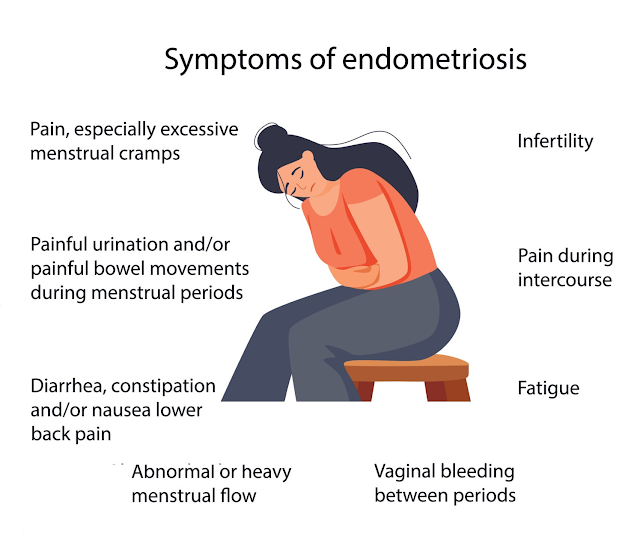Endometriosis in women can cause heavy bleeding or pain during periods, sexual activity, or urination. It can also cause problems with fertility.
Those at a high risk of getting endometriosis include having periods that began before age 11, or having periods that are heavy or last longer than 7 days, or a history of short monthly cycles of fewer than 27 days.
It affects many women. Worldwide, almost 10% of women of reproductive age have endometriosis. In very rare cases, it can occur in men.
Endometriosis: 10 Medical Myths vs. Facts
Let’s break down some facts and myths about endometriosis.
1. What is Endometriosis?
Endometriosis is a chronic condition in which tissue similar to that usually lining the inside of the uterus grows outside the uterus, causing pain and other symptoms.
2. What are its common Symptoms?
- Pain: More than 60% of women with endometriosis have persistent pelvic pain. Abdominal cramps can occur during periods, sexual intercourse, while urinating, or having bowel movements.
- Abnormal bleeding: Periods can be heavy or can vary in volume, cycle lengths can also vary, with midcycle bleeding a common symptom.
- Other symptoms: Nausea, constipation, fatigue, and fertility and mental health issues.
3. Does endometriosis affect fertility?
Studies show 30–50% of females with endometriosis experience difficulty getting pregnant.
However, having endometriosis does not automatically mean the person would be infertile. Some women with severe endometriosis can still become pregnant, while others with mild cases may face challenges.
If having problems getting pregnant, talk to your doctor. Some medications to treat endometriosis can prevent pregnancy, and may need to be stopped for you to conceive.
There is a myth that abortion causes endometriosis; this claim is not supported by facts.
4. How do doctors confirm endometriosis?
Diagnosing endometriosis often requires a procedure called laparoscopy. This helps doctors see the tissue and confirm the condition.
5. What are its treatment options?
Endometriosis symptoms are effectively treated with medical and surgical procedures.
- Your doctor may prescribe you hormone therapy, pain relief medications, and sometimes surgery.
- Hormone therapy can include estrogen-blocking medication.
- Surgery can include hysterectomy (removal of the uterus) — though endometriosis may recur after hysterectomy.
6. Does pregnancy cure endometriosis?
Pregnancy cannot cure or resolve endometriosis. Some women may see improvements in their symptoms, while most do not. Endometriosis tissues do not shrink or disappear with pregnancy.
7. Is the pain always intense?
Not everyone with endometriosis experiences severe pain. Some women with mild endometriosis have excruciating pain, and some people with deep infiltrating endometriosis (DIE) have little or no pain at all.
8. Can endometriosis occur anywhere in the body?
While it most commonly affects the pelvic area, endometriosis can develop in other parts of the body, including the lungs and even the brain.
9. Does menopause (end of menstrual cycles) cure endometriosis?
Endometriosis doesn’t always go away after menopause. Some people may still have symptoms even after their periods stop. Scientists estimate that 2–5% of females have postmenopausal endometriosis.
10. Does endometriosis run in the family?
While the exact cause of endometriosis is still unknown, there does appear to be a genetic connection. Those having a family member (mother, sibling, or daughter with the condition) with endometriosis have an increased risk.
Final Words
If you are having abnormal periods or lower belly pain for some time, consult us:
- Clinic Address: Rama Krishna Health Care, A-450, New Ashok Nagar, Delhi — 110096.
- Call us or WhatsApp us at 9811933566.


